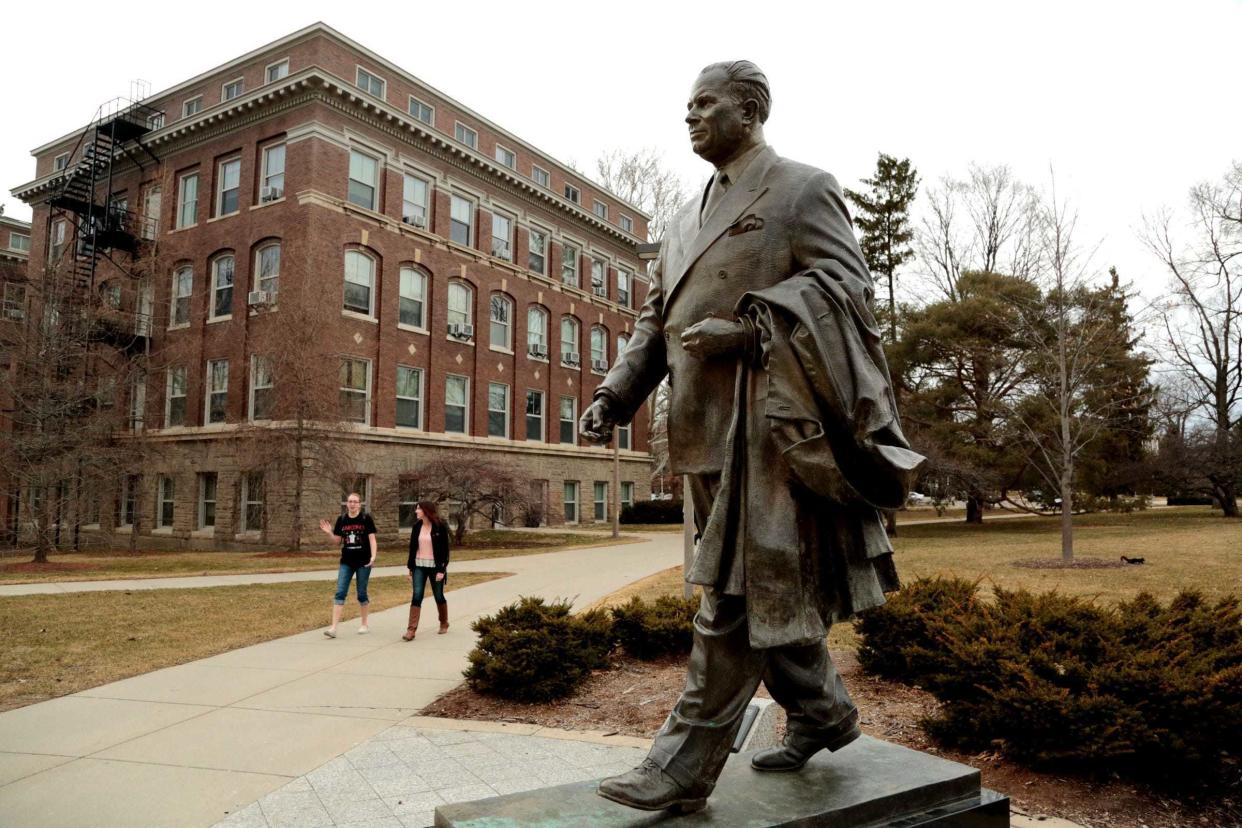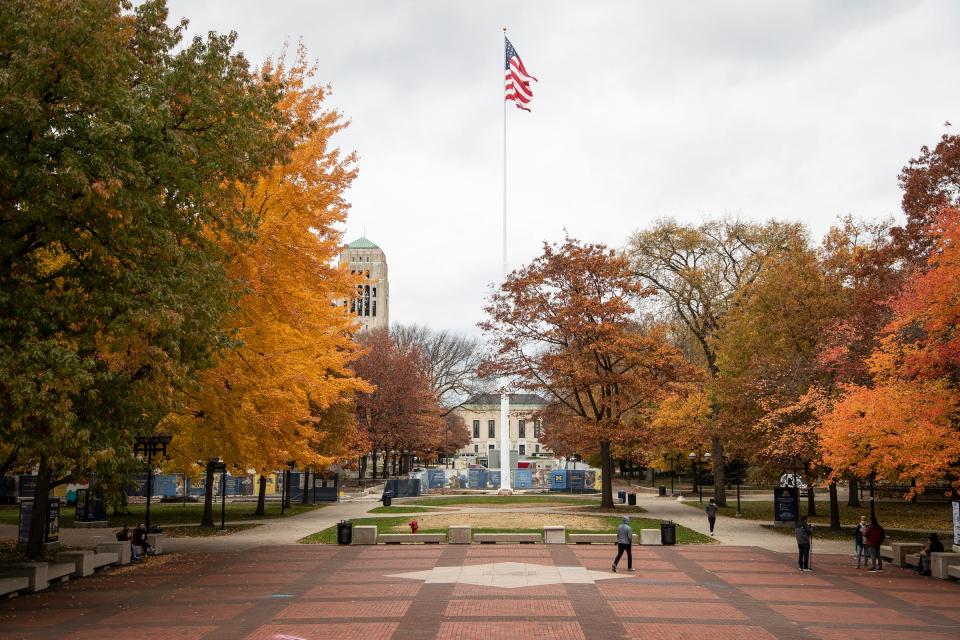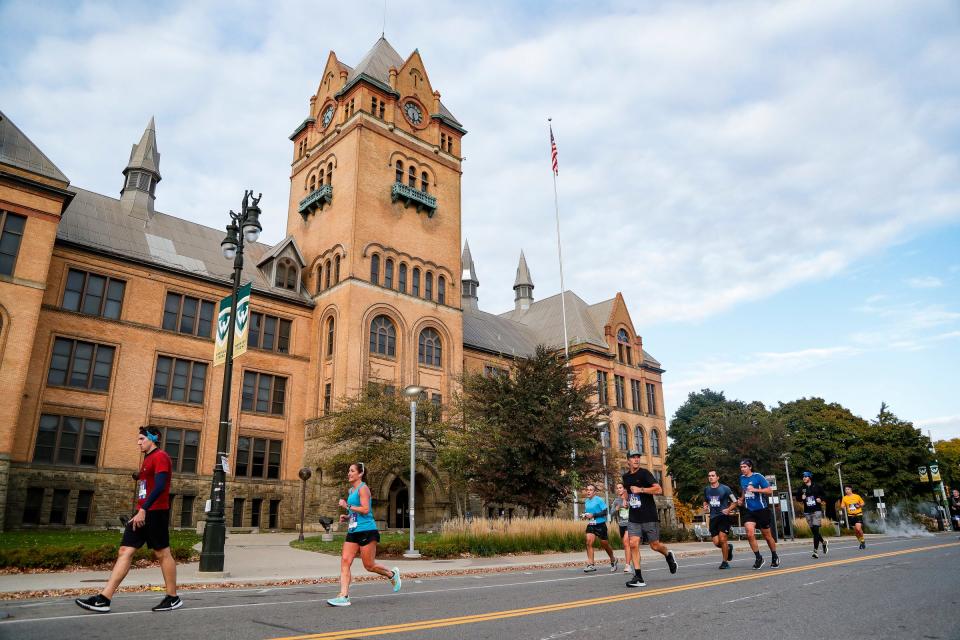Election explainer: How Michigan's university boards are determined

- Oops!Something went wrong.Please try again later.
Every two years, Michigan voters decide who will serve on the governing boards of three state universities.
During the November election, voters will take to the booth to bubble in their choices for the University of Michigan Board of Regents, the Michigan State University Board of Trustees and the Wayne State University Board of Governors.
If voters have ever found the statewide decision bizarre, they're not alone. The state of Michigan is a bit of an anomaly when it comes to the election of state university officials.
Michigan is one of just four states that votes on members of the state universities’ governing boards, determining by popular vote who will win the seat. A more common practice, upheld by the other 12 public universities in Michigan, is for state governors to appoint members to the board.
A gubernatorial appointment is still on the table if an opening arises during a term. For example, sitting Michigan State University Trustee Renee Knake Jefferson's name is on the ballot this election cycle, but she hasn't served a full term.
Gov. Gretchen Whitmer appointed her to the seat in December 2019, filling an opening left by Nancy Schlichting. Schlichting was originally appointed in December 2018 to fill the seat vacancy left by George Perles — who resigned due to health concerns before his death in January 2020. Perles was re-elected to the board in 2014.

According to Act 116 of 1954 in the Michigan State Constitution, each party is able to nominate two candidates to fill the roles. The election of candidates for the board of regents began in 1966, while elections for the board of trustees and the board of governors began in 1964.
The boards serve as the primary governing bodies for their respective schools. The state constitution passes the governing responsibilities to the board, including the hiring of a school’s president to assist with delegation. The board is responsible for handling the finances of the schools as well as "general supervision of its institution.”
The trustees, regents and governors are elected for eight-year long terms, though some have advocated for a change in the system in recent years — especially regarding the boards' handling of the COVID-19 pandemic and the fallout of Larry Nassar’s abuse at MSU and Robert Anderson’s at U of M.

Subscribe:Get unlimited access to all our local coverage
At the University of Michigan, Mike Behm, Kathy White, Lena Epstein, Sevag Vartanian, Eric Larson, Joe Sanger, Sherry A. Wells and Kathleen Oakford are on the ballot to take the two open seats.
At Michigan State University, Dennis Denno, Renee Knake Jefferson, Mike Balow, Travis Menge, Claranna Gelineua, Max Riekse and Robin Lea Laurain are running to fill the spots.
At Wayne State University, Danielle Atkinson, Marilyn Kelly, Christa Murphy, Craig Wilsher, Bruce Jaquays, Marc Joseph Sosnowski and Susan Odgers are running as governors.
The election is Tuesday, Nov. 8.
— Contact education reporter Karly Graham at kgraham@petoskeynews.com or on Twitter at @KarlyGrahamJRN.
This article originally appeared on The Petoskey News-Review: Election explainer: How Michigan's university boards are determined

